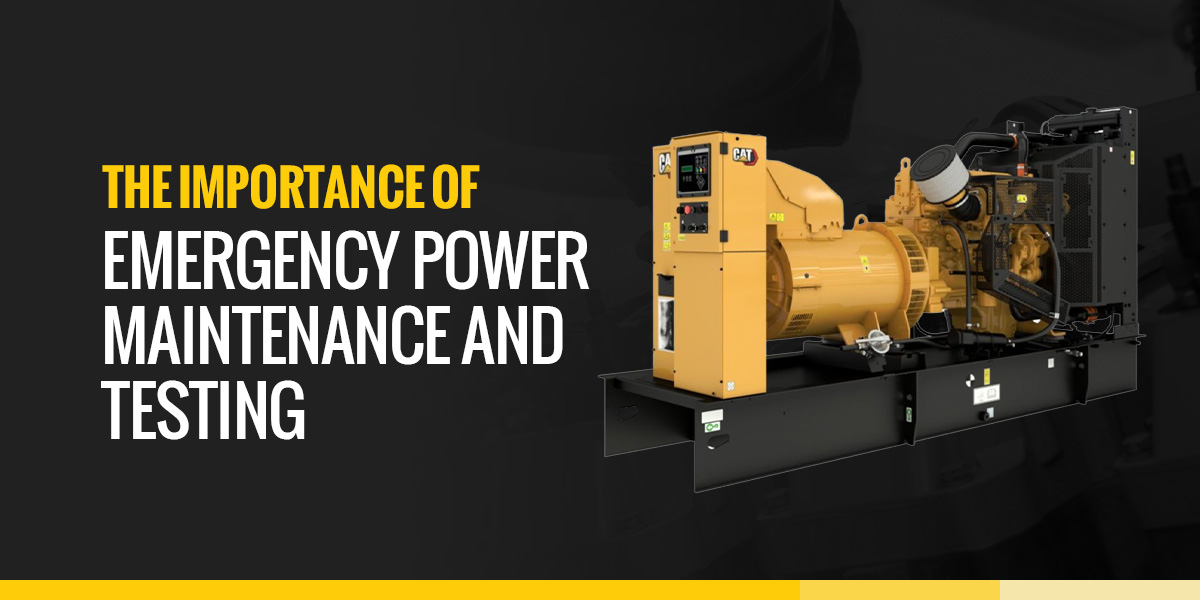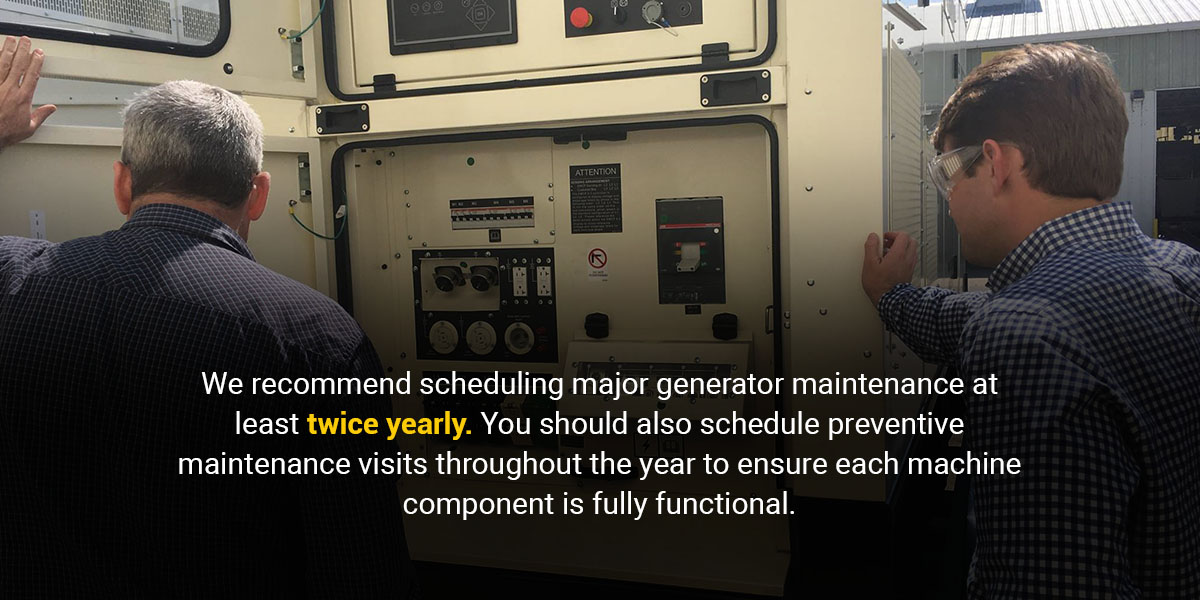

A power outage is not the time to discover that your emergency generator requires maintenance. Your operation needs a reliable, functional, and efficient secondary power source so it can continue running despite an electricity failure. This need is why implementing a regular maintenance and testing program is so important.
Emergency power maintenance and testing are crucial to keeping your critical power generators performing in peak condition. Let’s explore some of the reasons why below.
Regularly scheduled generator maintenance provides several benefits for your machinery and business:
You want to be able to count on your generator to save the day when your operation loses power. An efficient generator can help you avoid a shutdown by seamlessly picking up the slack until you’re able to resolve your power problem.
Regular inspection and maintenance allow technicians to detect and deal with minor issues before they become major ones. Issues that start small can evolve into complex problems that require downtime to repair, which can decrease your business’s productivity.
Fine-tuning your generator during periodic maintenance sessions can help you avoid unexpected complications. Preventive maintenance will help keep it operating smoothly and in top condition, which is a win for you and your business, employees, and equipment.
Regular generator maintenance will ensure your machine is stocked with an efficient and viable fuel supply so that it has adequate stores to burn when needed.
Fuel can oxidize and deteriorate with time, especially if it sits in an unused generator for extended periods. Oxidation can lead to impurities and sediments, which can clog the fuel injectors, cause the machine to operate improperly, and potentially overheat. An overheated generator can break down the chemical structure of the battery, leading to leaks and battery failure.
You can avoid such fuel issues with regular generator maintenance. Maintenance technicians will test your generator to make sure it consumes fuel properly. They’ll also drain and refill the fuel system completely to ensure it has a fresh supply until its next scheduled service.
Generators are both an investment and an asset, so you want them to operate well for as long as possible. Generators can provide years of reliable service, especially when they receive regularly scheduled maintenance.
Generators that run poorly can develop damage that shortens their life span or even causes them to fail altogether. Preventive maintenance sessions, however, allow you to identify concerns and remedy them early. By addressing issues before they have a chance to do serious damage to the machine, you can increase the generator’s life span.
While a routine preventive maintenance plan is an expense, the cost is merely a fraction of the downtime and repair expenses you’d incur by neglecting your machine.
Neglecting regular generator maintenance can eventually lead to additional avoidable costs. Undetected problems can escalate into serious issues that necessitate downtime and costly repairs. If the problem is too severe for a technician to repair, you’ll need to spend more time and money to purchase and set up a new generator.
Fortunately, routine maintenance helps keep problems minor and financially manageable. Regular maintenance appointments throughout its life cycle can help you save time and money by:
Proper maintenance helps reduce generators’ safety risks, including:

During maintenance appointments, a certified technician will perform services such as:
We recommend scheduling major generator maintenance at least twice yearly. You should also schedule preventive maintenance visits throughout the year to ensure each machine component is fully functional.
Supplement your maintenance schedule with the following weekly and monthly interventions to get the most out of your critical power group of generators and further enhance longevity.
Perform the following tasks at least once a week:
Perform the following tasks at least once a month:
At Thompson Power Systems, we offer generator sales, rentals, parts, repair, and maintenance services with a local, familiar feel you won’t find elsewhere. Contact Thompson Power Systems today to partner with our trustworthy, experienced, and knowledgeable team. We look forward to assisting you with all of your power generator needs!